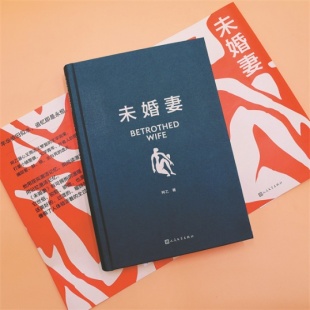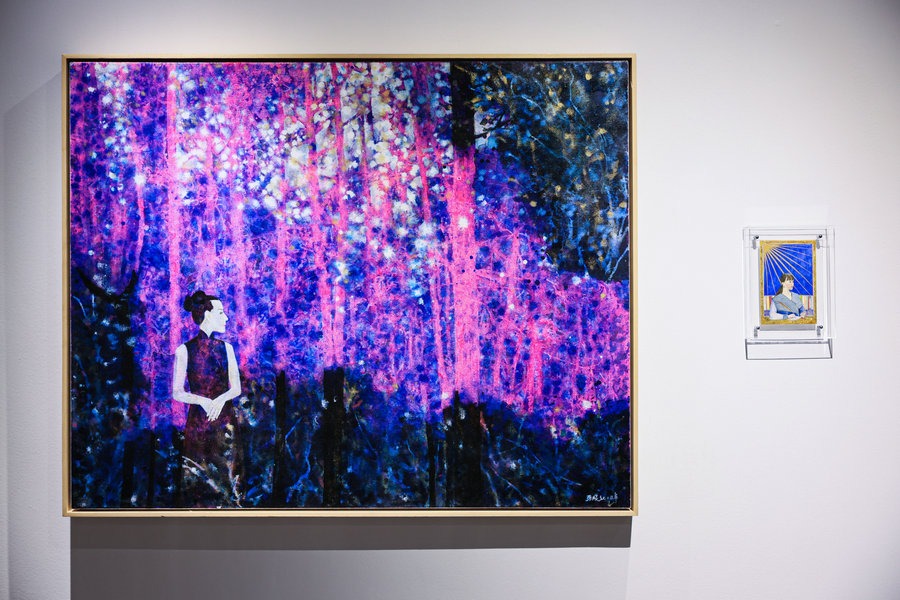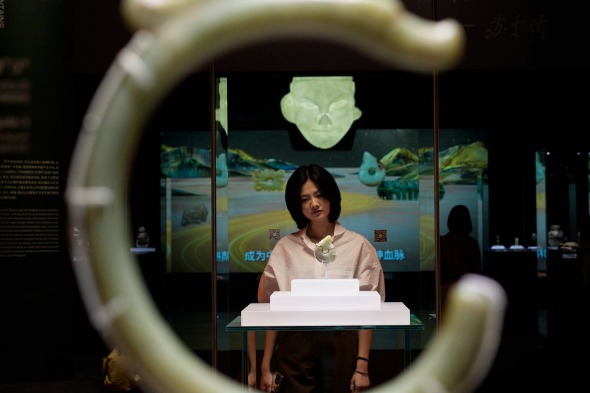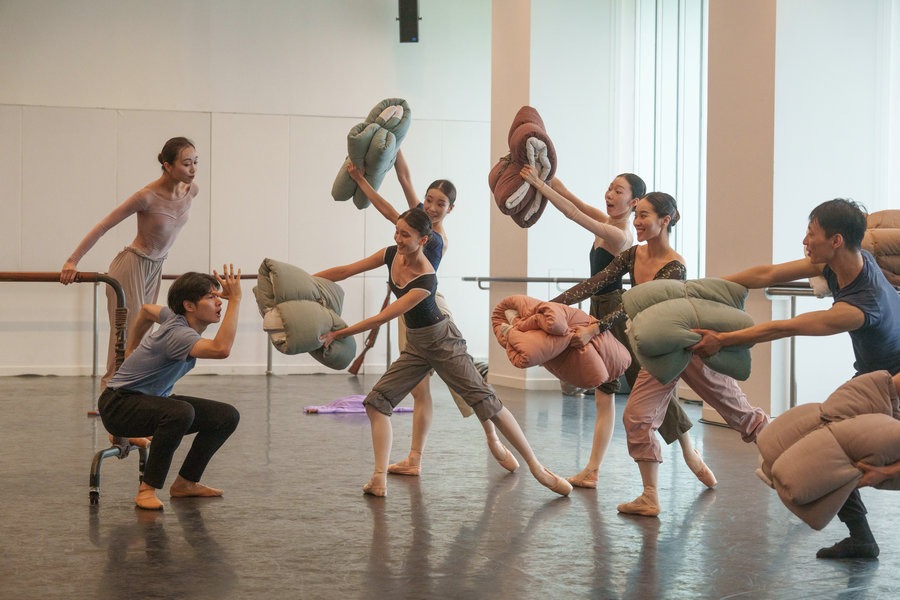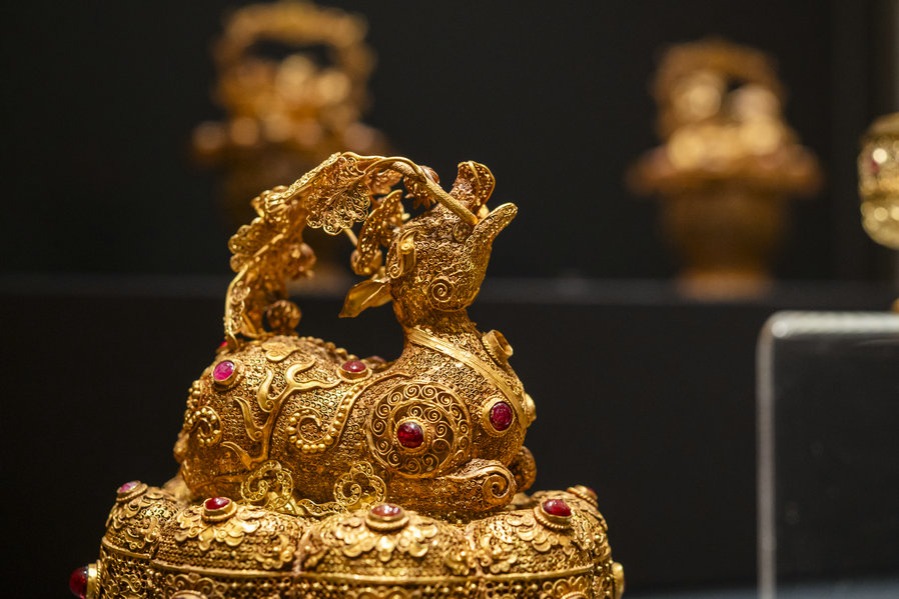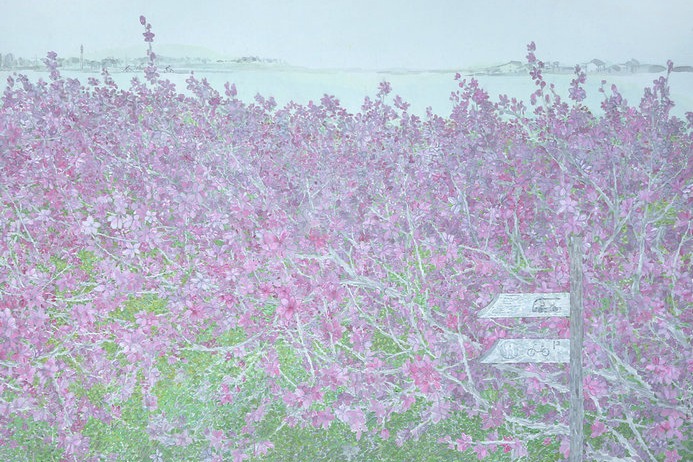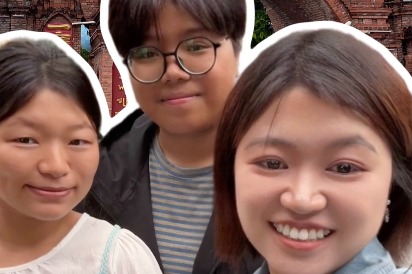Author hopes to make his own story
Exploring new styles, he believes, will help him conquer mediocrity, Yang Yang reports.

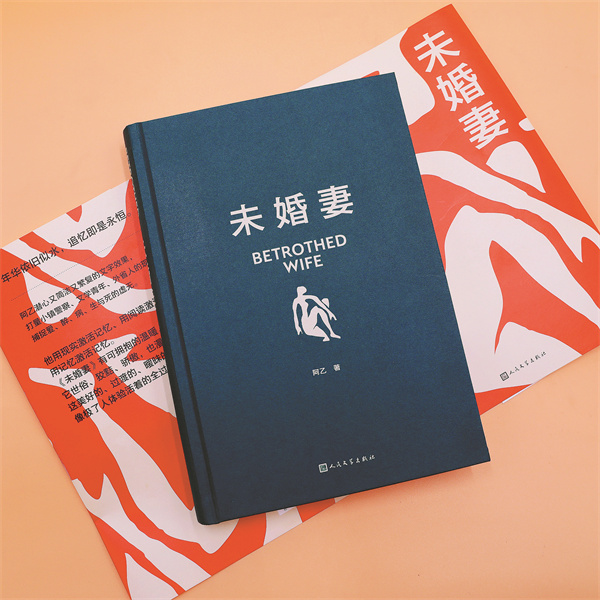
"You can't empathize with everyone because, in the end, people can only be really affectionate toward those they love, or themselves. So I doubt such writing. It can be dishonest."
From 2016-19, A Yi spent much time reading Marcel Proust's In Search of Lost Time. He came across Nobel literature laureate Claude Simon, who said real narrative started from such writers as Fyodor Dostoevsky, Proust, James Joyce and Franz Kafka.
"For him, even Gustave Flaubert is not a really great writer, because what he wrote had very little to do with himself. Simon's opinion has largely inspired me," A Yi says.
As a writer who has never stopped trying new styles, A Yi decided to rebel against the news writing style, and focus on his inner world.
"To explore new writing styles is my way of resisting mediocrity and boredom. Some people collect stamps, some buy a lot of cars and some others purchase a lot of clothes. Albert Camus regarded such behavior as an ethical way for people to resist nihility," he says.
"Because of my disease, I can't move around too much. What I can do is to describe different worlds through writing. However, writing about the same things again and again makes me feel nauseous. It's just like spending your whole life in a county and writing tedious material in the office every day," he says.
He fully demonstrates his resistance in his new novel Weihunqi. In contrast to the objective news writing style, he frequently "breaks the fourth wall" to talk directly to readers about his feelings and thoughts in both the past and the present. In addition, he also tried to enrich the reading experience by adding footnotes.
In first-person narration, the autobiographic novel recounts a love story that happened more than two decades ago. At the time, Ai Guozhu, the real name of A Yi, was a 25-year-old secretary in a police station in his hometown of Ruichang, East China's Jiangxi province. Ai's main job was writing tedious materials.
One day, when he accompanied his leader to the countryside, he met a 20-year-old woman, Ouyang Chun, with whom he fell in love at first sight. The novel tells how Ouyang became his fiancee, but also suggests that the relationship failed, which will feature in his next novel Weihunfu (The Fiance).
It was a real personal experience, but the story itself is plain and unremarkable, says A Yi.
It is a romance happening in an average county that now has a population of 400,000. It rains every day and people see the same view — scooter riders on the road every day. People are generally boring, even those having an affair, he says.
"If I honestly represent such an uninspiring life to readers, it will be very embarrassing because it's just the boring life of ordinary people," he says.
However, A Yi found his life experience was limited, so that he could not provide readers with aesthetic enjoyment by portraying delicacies, beautiful attire, or arts like Proust did in his masterpiece.
He thus found a way to connect the feelings, thoughts and realities in the daily life of the fictional Ruichang with other texts and experiences by adding footnotes.
Readers can find in the footnotes quotes from The Bible, In Search of Lost Time, Ulysses, Jean Anouilh's Antigone, Ruediger Safranski's Evil or the Drama of Freedom, poems, or films, his later experience with college students and his other thoughts that are unsuitable for the narration, among others.
"I want to create connections between the fictional world and other worlds so that readers can feel that although it's a story set in a normal county, it's not a specific county. Rather, it's a story happening in human society," he says.
For example, by comparing the speech of Ouyang's mother, a boorish modern vegetable vendor, with that of someone from ancient times, or that of Madame de Guermantes from In Search of Lost Time, the readers can see similarities between them and common human nature, regardless of their wealth, reputation, or the time and place in which they live, he explains.
Writing in this style, A Yi says that he can fully enjoy the fun and freedom of writing with no limit in topics or style, and writing freely will ultimately bring truth.


